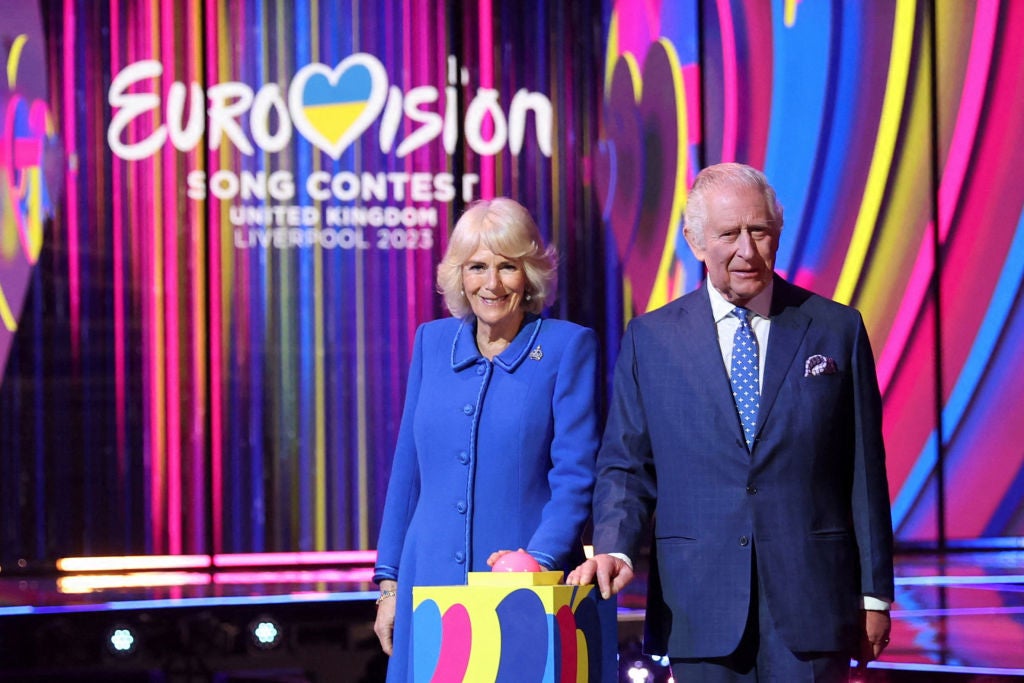
The city of Liverpool in northern England has been transformed into a spectacle of music, glitter and colour this week as the city hosts the 67th annual Eurovision Song Contest, a musical extravaganza where each country in Europe competes to have their original song chosen as the winner. Normally, the country who wins each year hosts the next year’s contest, but last year’s winner was Ukraine, which is unable to host at the moment for obvious reasons. So runner-up UK is hosting for them.
The world’s most-watched annual live television event (with more viewers each year than the Superbowl, the Oscars and the Grammys combined) is very strict about being a non-political contest, and this extends to songs explicitly about political causes such as climate change. However, songs with vaguer messages about climate change and the environment have featured prominently over the years.

Discover B2B Marketing That Performs
Combine business intelligence and editorial excellence to reach engaged professionals across 36 leading media platforms.
Finland has been the most enthusiastic about sending Eurovision songs about climate change. In 2019, it sent a song called Look Away by Sebastian Rejman, who said his message was that life cannot go on as normal with climate change happening all around us. “There’s something going on, and I can’t turn my back on it anymore,” he sang. “There’s something in the air at night, that feels so different, and I don’t understand, I didn’t see this one coming.”
It wasn’t the first time Finland sent a song about climate change to the Eurovision Song Contest. In 2011, Finland’s song Da Da Dam by singer-songwriter Paradise Oskar was about a boy who wants to save “the dying planet” from environmental disaster.
A history of climate change at Eurovision
The very first song in the Eurovision Song Contest about climate change was Germany’s entry in 1971 called Diese Welt, by Katja Ebstein. At a time when knowledge of climate change was murky, she sang about how pollution was changing the air temperature and water levels. It came third that year. The next time the subject came up so explicitly wasn’t until 1988 with Norway’s For Vår Jord by Karoline Krüger. Her song was about a woman who warns of an environmental catastrophe to come, but everyone ignores her. The woman knows the dangers of what’s ahead, but she is the only one who knows.
The 2000s was when the issue really started popping up repeatedly. One of the more memorable times was with Ukraine’s 2010 Eurovision entry Sweet People by Alyosha. The singer pleads with people to act urgently before it is too late “because this is your home”. She said at the time she was “convinced that world leaders are capable of solving most global environmental problems but lack political will”. The haunting video was shot at the ruins of Chernobyl.

US Tariffs are shifting - will you react or anticipate?
Don’t let policy changes catch you off guard. Stay proactive with real-time data and expert analysis.
By GlobalDataThe most explicit song about climate change in recent times wasn’t explicit for its political message but rather for its sexual references. Latvia’s rap-pop song in last year’s Eurovision contest, Eat Your Salad, threw innuendo out the window by starting the song with the line “instead of meat I eat veggies and p****” (final word muted during the broadcast). The band Citi Zēni insisted it wasn’t just a way to sneak in a crude joke but a way to talk about the lead singer’s own conversion to veganism to reduce his climate impact – “to make a hard topic easy to digest and fun to listen to”.
Aside from the subject of climate change popping up in the music, the European Broadcasting Union, which organises Eurovision, has also made tie-in efforts with the subject of climate change. In 2021, the environmental NGO WWF teamed up with Eurovision to launch the Voice for the Planet campaign, an effort to gather one million voices on Tik Tok to pledge to campaign for the planet. The campaign saw a kick-off with Dutch DJ Armin van Buuren in Rotterdam, which hosted that year’s majorly scaled-down show during Covid-19 after the 2020 version was cancelled altogether. Ironically, Rotterdam was the Eurovision show that may have done most for the planet, not because of its climate messaging but because it was so small.





